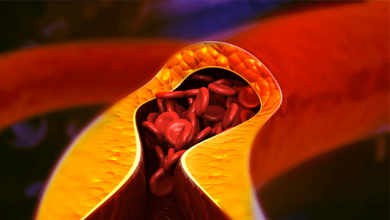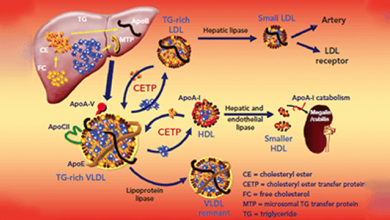Search results
Author(s):
Heather Currie
,
Christine Williams
Added:
3 years ago
Cardiovascular disease (CVD) is the leading cause of death in both men and women, yet the extent of the problem in women is frequently underestimated and, compared with men, women are less likely to be offered interventions, are less likely to be represented in clinical trials and have a worse prognosis. This article aims to examine the extent of the problem of CVD in women, summarise the…
View more
Author(s):
Natalie Arnold
,
Katharina Lechner
,
Christoph Waldeyer
,
et al
Added:
2 years ago
Author(s):
Richard Hobbs
,
Terry McCormack
,
Claudio Cricelli
,
et al
Added:
3 years ago
The interplay between risk factors, the variable influence of any one risk factor and the tendency for risk factors to cluster make the determination of cardiovascular disease (CVD) risk in apparently healthy individuals more complex1 than assessing any single risk factor in isolation. For example, age factors heavily in a patient’s CVD risk; however, a younger patient with multiple factors may…
View more
Author(s):
Claudia Agabiti-Rosei
,
Anna Paini
,
Massimo Salvetti
Added:
3 years ago
Uric acid (UA) represents the final product of purine metabolism, in humans mainly regulated by the xanthine-oxidoreductase enzyme, which converts hyoxantine to xanthine and xanthine to UA. Dietary factors may influence serum UA (SUA), increasing its levels (meat, seafood, fructose, alcohol and sodium) or decreasing them (coffee and ascorbic acid). In addition, high cellular turnover conditions,…
View more
Author(s):
Maki Komiyama
,
Koji Hasegawa
Added:
3 years ago
Type 2 diabetes is a major risk factor for the development of cardiovascular disease (CVD) such as MI, and cerebrovascular incidents such as stroke. A substantial body of evidence has indicated that the proper management of blood glucose in people with diabetes can inhibit the progression of microvascular disease such as retinopathy and nephropathy.
Nevertheless, whether strict blood glucose…
View more
Author(s):
Jean-Claude Tardif
Added:
3 years ago
Dr Jean-Claude Tardif (Montreal Heart Institute, Montreal, CA) discusses the effects of Apolipoprotein C-III (ApoC-III) reduction in cardiovascular (CV) disease. The administration of APOCIII-LRX in patients with hypertriglyceridemia and high CV risk was associated with inhibition of ApoC-III and lower levels of triglycerides.
Questions:
1. What is the background of this study?
2. What was the…
View more
Author(s):
Alberto Lorenzatti
,
Peter P Toth
Added:
3 years ago
We are witnessing an epidemic global increase in the prevalence of obesity and its clinical consequences (e.g. insulin resistance and diabetes). This epidemic has been potentiated and sustained by the widespread adoption of unhealthy lifestyles in broad swathes of the population and is characterised by a sedentary lifestyle and an imbalance between the type and characteristics of nutrition,…
View more
Author(s):
Amelia Carro
,
Josefa María Panisello
Added:
3 years ago
Dietary Patterns
Several studies correlate healthy dietary patterns with lower plasma concentrations of pro-inflammatory markers.1 These healthy dietary patterns support greater benefits than the potential effects of a single nutrient supplementation. The current body of evidence shows that healthy dietary patterns share similarities, shown in Figure 1.2 These features fit with the report of the…
View more
Pre-eclampsia and CVD
Author(s):
Veronica Giorgione
,
Matthew Cauldwell
,
Basky Thilaganathan
Added:
10 months ago
Article
Author(s):
Carolyn M Webb
,
Peter Collins
Added:
3 years ago
Cardiovascular disease (CVD) is the most prevalent non-communicable cause of death worldwide.1 The health and economic implications of caring for a growing ageing population with CVD is enormous. Maintaining a “healthy” elderly population that is mobile and independent with a good quality of life is vital. Testosterone is a sex hormone that is predominant in males, being secreted from the testes…
View more















